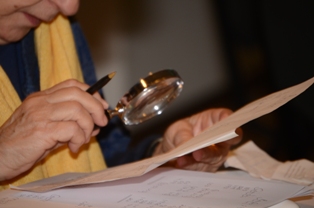by Elaine Gallagher
TEACHERS of ENGLISH: There is much talk about “competencies”, but, often, teachers are puzzled. What do they include?
Here is a brief guide of the general competencies that apply to primary students, and the areas that you can concentrate on to assure that your students are having lessons based on basic competencies.
COMPETENCIES FOR PRIMARY STUDENTS
Most educators world-wide are in agreement that children need to acquire certain competencies in order to be successful as students and competent as human beings. In place of specific, rigid terminal objectives that must be mastered for academic “success”, educators now recognize that more general, gradually-developed abilities and interests will result instudents who know more, enjoy learning, and who have self-confidence.
Each country has its own version of which competencies need to be developed. In essence, most countries have similar competencies. Educators in Spain, for example, have recognized eight basic competencies that need to be developed in our students for life-long success that begins in childhood. Many countries have adapted these same ideas of competencies, perhaps with different names, but, basically, educators world-wide are on the same road towards generalized competencies instead of specific objectives.
BASIC COMPETENCIES
1. Linguistic
Students listen, speak, read, and write appropriately for their developmental stage. Receptive skills (listening and reading) and productive skills (speaking and writing) are developed, emphasizing fluency of ideas instead of memorized grammar rules.
2. Mathematical
Students develop a number sense, relationship between objects and numbers, having fun with numbers, concepts, design, shapes, mental math, and recognize the abstract and concrete.
3. Knowledge of the natural world
Students learn to appreciate and understand biology, physical sciences, nature, animals, plants, astronomy, the world around them.
Geography, history, the interaction between the two are gradually introduced to students over time, so they can see the world as a united whole.
4. Managing information
Students learn how to utilize various information sources: computers, Internet, encyclopedias, libraries, media centers, electronics, computer-generated presentations, so they are comfortable and competent in their use.
5. Social responsibility
Students are guided to self-respect, respect of others, and to recognize their important role in the preservation of the environment and helping others less fortunate, leading to interpersonal tranquility and recognizing their contribution to world peace.
6. Art and culture
Students are introduced to various artistic forms (art, music, dance), both as a participant and as one who can appreciate the arts. They also learn to appreciate and respect the various cultures, races, and religions of the world, by readings, discussions, and varied experiences.
7. Learning how to learn
Students are shown metacognitive techniques so they can become more responsible for their own learning and achievements. Learning styles, self-corrections, team work, knowledge of cognitive levels (Bloom) and multiple intelligences (Gardner) are shared with students gradually, so they can be aware of their own important role in their success.
8. Personal initiative
Time on-task, motivation techniques, and personal commitment to do one personal best are emphasized. Praise, encouragement, planning and scheduling skills are emphasized. Students are taught to ask themselves: “Is this an example of my personal best?”
By supporting these competencies among our students, we hope to develop life-long learners, who not only achieve academically, but who enjoy learning, thinking, and doing.
_______________________________
